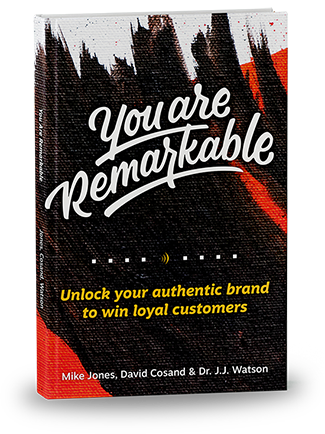Oh boy have things gotten heated in the world of advertising and marketing!
Political ads and radical brands are certainly on the rise in our new American political order, as FastCo recently discussed. It is becoming quite ‘en vogue’ to use politics as yet another tool in the marketing tool belt.
I’ve certainly seen this confirmed in recent events, not least being the various politically-tinged ads during the last Super Bowl. And of course there’s the politically-fueled feud that erupted between Uber and Lyft the weekend of Trump’s immigration policy announcement a few weeks ago. This was a particularly interesting episode in the saga of brands dealing with politics that directly affect their staff and customers. (If you haven’t heard much about this Lyft-Uber story, you can get caught up here.)
All of this has got me thinking hard about the radicalization of brands. Is it okay for brands to take political stances? Are there times they shouldn’t? If they do, how should they deal with customers or employees or partners and vendors that don’t agree with them? Are there lines they shouldn’t cross?
Setting the Stage
To start answering these questions, there are some presuppositions I have to get out on the table. You’re welcome to disagree with these, but it’s helpful to know where I stand on matters of brand if my further thoughts are to make any sense.
- A ‘brand’ is the reflection of the cumulative culture of the organization, its products, and its customers. It’s interesting to note that there is a distinct connection between culture and individual people. You cannot parse a brand from people (be that the leaders and teams in the organization, the customers, or even the partnerships and vendors the organization associates with).
- And, yes, just like individuals, cultures have a set of values. The more cohesive the culture, the more unified and distinct the set of values.
- Values drive behavior. The actions a business takes are always a reflection of those values, though deducing the values from the behavior is always clear from the outside.
- Ultimately, all organizations are self-serving, at some level. There is an innate drive in human nature to sustain ourselves and our species. And this extrapolates to the organizations we form. Once started, there is a deep (sometimes stated, sometimes not stated) drive within organizations to continue.
Can taking a political stand simply be an outflow of brand values?
With these presuppositions in mind, for me, there’s one clear outcome for organizations and their values: most businesses are NOT run with a completely apolitical value system. Just as this is true of individuals, this is true of organizations. We all have some sort of values and beliefs that drive our decisions and behavior.
When these come into contact with other value systems, there will be a drawing of lines.
Look at the long history of businesses. You’ll see countless times where either an ownership’s personal values or the collective values of the company’s staff and employees have influenced business decisions outside of a simplistic ‘what’s best for our bottom line’ mentality – often from the point of view of creating change in the world at large.
I’d argue that most businesses who strive to be ‘great’ have far deeper motivations than merely making a buck. And thus, they often strive to influence culture at large (including through political means).
Even a ‘profit for profit’s sake’ mentality will lead to politically-minded behaviors. There’s a reason why lobbyists are paid such insane amounts of money – usually by businesses and business associations.
But is a brand taking a political stand a good idea?
We now live in a particularly divisive time. The lines in politics are being drawn with very heavy hands. The ability for anyone – individuals, businesses, non-profits, churches, celebrities, authors, and of course politicians – to hold to the middle has become wildly unpopular (or at least unworthy of publicity). The demand for ‘taking a side’ is loud. And I think most brands – especially those that are multi-national – will be hard pressed not to play the political card in the expression of their values.
Consider the brands who are most outspoken about politics at this moment, especially those who have taken a public stand against Trump’s immigration policies. Most benefit directly from either a positive attitude from customers outside the U.S. (think Coca-cola, Pepsi, even AirBnB) or employees and customers who are directly impacted by immigration policies (think Facebook, Google, and even anyone in the residential construction industry).
For these businesses it may be both an expression of values (multiculturalism and diversity) as well as behavior driven by the bottom line. If Coca-cola is perceived outside the US as a follower of Trump’s ideals or even giving tacit permission, this may directly impact their sales. And for some of these massive international companies, sales outside the U.S. have the greatest growth potential and so their decisions reflect this global perception.
But are brands acting for the good of people?
Let me be clear: I’m certainly not saying companies do everything (especially politically-slanted advertising) out of sense of ‘good’ or ‘right’. In fact, I’d bet many do it out of simple self-sustaining motivations. There’s a lot of posturing right now amongst brands that is not really politically-motivated. It’s just them rolling the dice on an issue in hopes of improving their bottom line and remaining in the clear with most of their customers.
I’d argue that most multinational, global companies do not have a very strong declaration of values outside of ‘profit’ and self-sustainability. Some might have pockets of strong moral values in parts of their culture, but the behemoth of the bottom line often far outweighs any true value of ‘doing good’. For these companies, a political ad is simply them trying to keep up with their perceived customers or an attempt to appear ‘ahead of the curve’ or ‘on the right side of history’.
But then again, isn’t this what many activist groups, politicians, non-profits, and individuals are attempting to do, too – be on the right side of history? This isn’t necessarily a selfless value. It’s the human condition to want to be on the side of popularity.
I’m not inclined to get too worked up over politically-minded ads from brands. It’s their money. And the alternative is a highly-regulative environment where political parties in power get to say ‘yes’ or ‘no’ to the content of ads – even more than they do now. That seems counter to advertising itself, which has always been a one-sided act of persuasion towards a decision.
Now if we’re talking hiring/firing practices and discrimination over political views, that may be a very different conversation. But then again, this is already a contentious topic amongst non-profits (especially religious organizations). Should any organization be able to hold their employees to any sort of shared set of values?
I’d argue that the ability to rally a company around shared values – be that radical political ideas or perhaps some less divisive things – is crucial to building vibrant, sustainable companies. That said, I think history has proven that radicalization may not always be a good idea in the long run. The world of politics is rife with ever-changing trends. Should you choose to chase them without tying them to deep-seated values, you’ll be torn to shreds.
I challenge every company everywhere to really think hard before taking a radical political stand. Ask yourselves: is this a point of view on the world that you truly believe in? Is it something you’re willing to sacrifice relationships for – customers, employees, partners, stockholders? If not, then you’re probably not really being authentic when you throw out that politically-charged ad. And I’m betting the marketplace will catch on and let you have it eventually. Customers are pretty dang smart. Be careful if you try to play them.



